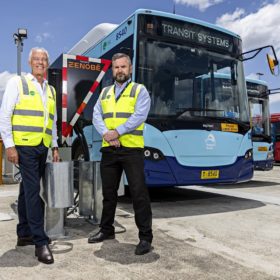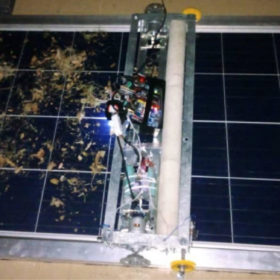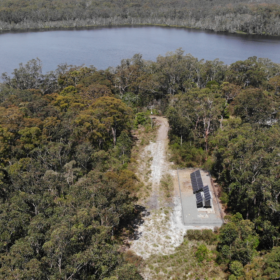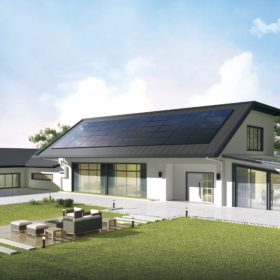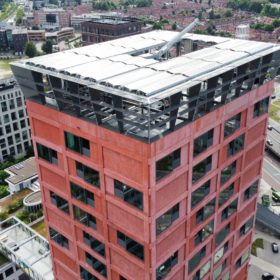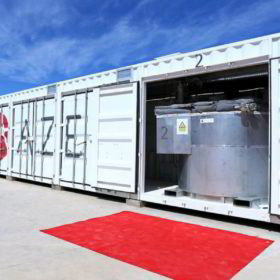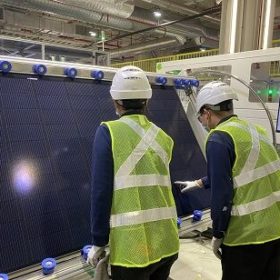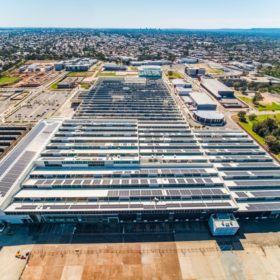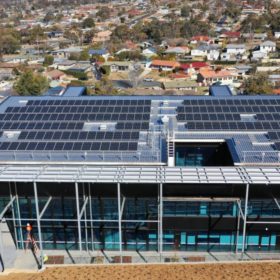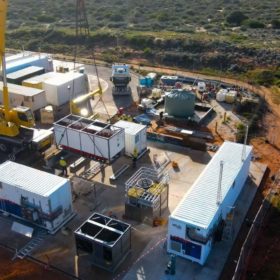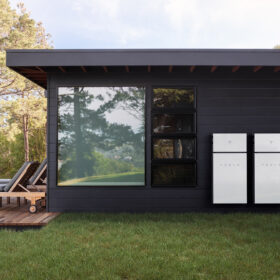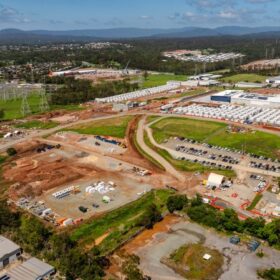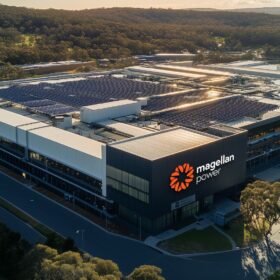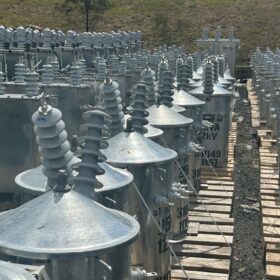Australia’s largest electrified bus depot goes into operation in Sydney’s west
A the newly operational electric bus depot in Sydney’s west illustrates the infrastructure required to run an electric bus fleet, but also demonstrates that an electric bus fleet requires less charging than originally forecast.
Colour-sensing tech to remove dirt from solar panels
Researchers in South African have developed a new cleaning system for solar panels that uses a colour-sensing light-to-frequency converter to detect dirt. It can reportedly remove about 95% of the dust from a PV panel in less than a minute, at a lower cost than other systems.
Standalone power systems begin migrating to eastern states
Boundary Power, a union between West Australian standalone power system (SAPS) leader Horizon Power and Ampcontrol, has installed its first off-grid system for an unnamed east coast utility in regional New South Wales.
Cell switch boosts power output of Trina Vertex S module
Chinese PV technology manufacturer Trina Solar has launched an upgraded version of its Vertex S All Black module featuring an increased output of about 30 W hoping to capture a significant portion of Australia’s growing residential and commercial solar market.
Rooftop system with PV panels, mini wind turbines in the Netherlands
Ibis Power has developed a rooftop system that combines solar with wind turbines designed for medium-sized structures and high-rise buildings. It claims its PowerNEST system can produce six to 10 times more energy than standalone rooftop solar. The company has already installed five projects in the Netherlands.
Molten aluminium storage startup enters Australian market, apparently
In a decidedly confusing announcement, Swedish molten aluminium storage startup Azelio says it has secured a conditional order from relatively unknown Australian company MPG Built. Azelio says the order will see it provide “energy-as-a-service” using five of its TES.POD storage units combined with solar power.
REC Group rolls out new solar module for rooftop market
Norway-based solar manufacturer REC Group has commenced production of the fifth generation of its TwinPeak module series, offering improved power outputs from 395 W to 415 W and efficiencies ranging from 20.1% to 21.1%.
CleanPeak to switch on massive 5 MW rooftop system
One of Australia’s largest rooftop solar arrays will be energised this week with CleanPeak Energy announcing the second phase of a 5 MW PV system at the Tonsley Innovation District in Adelaide is set to be switched on in the coming days.
NSW seeks proposals for renewables rollout across 2,200 public schools
After a productive pilot project that saw solar, batteries and VPP technology installed at 60 public schools in New South Wales, the state government is now seeking proposals to finance, deliver and operate such renewable energy solutions across 2,200 public schools.
Australian-first green hydrogen microgrid powers up in WA
Australia’s first hybrid solar and renewable hydrogen microgrid has officially launched as green hydrogen production began at Horizon Power’s demonstration plant in the coastal community of Denham in Western Australia’s Gascoyne region.
